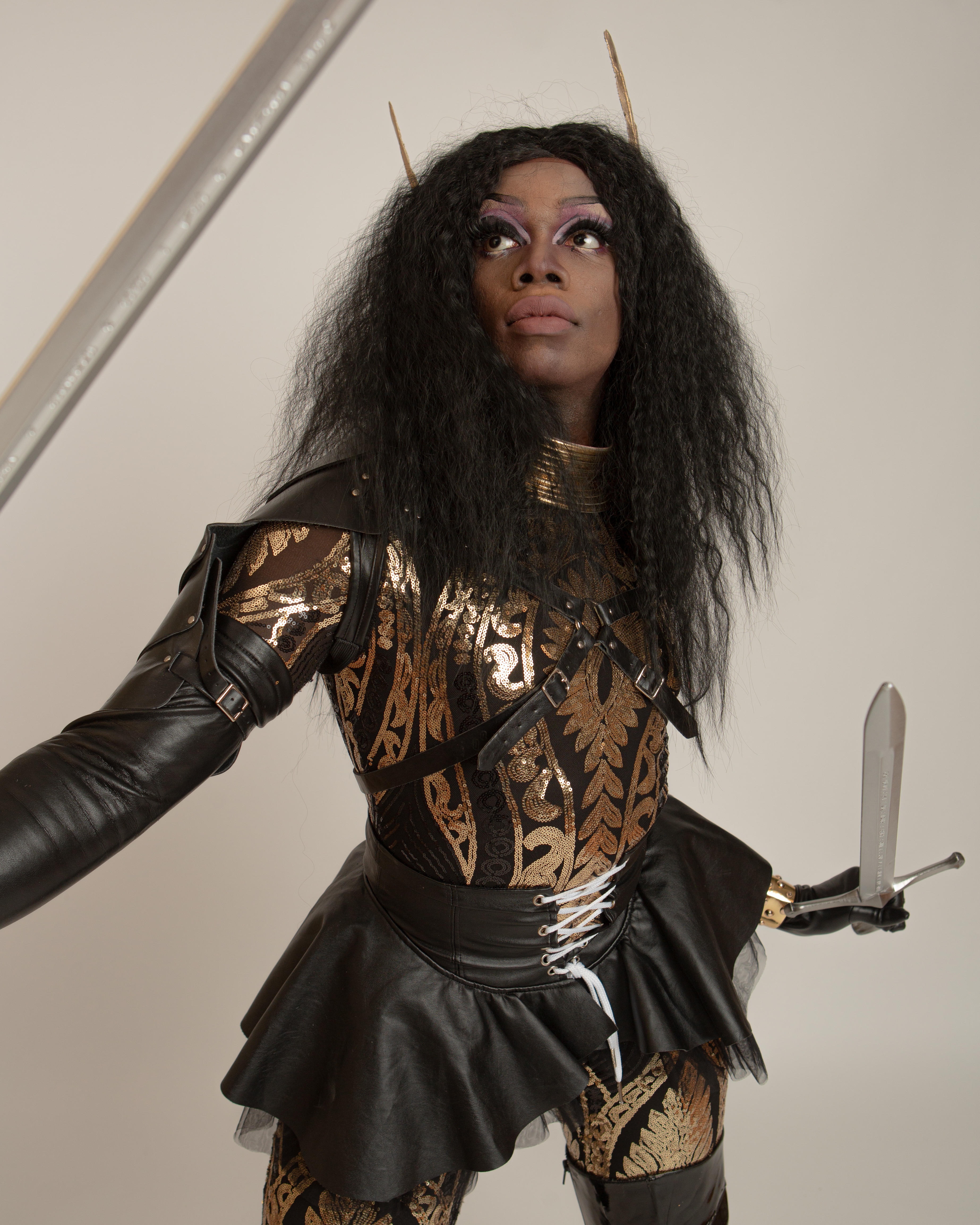This article originally appeared on VICE Netherlands.
At first glance, drag and Dungeons & Dragons (D&D) do not seem like natural partners. One’s a flamboyant art form that mocks gender roles from nightclub stages; the other’s an intimate tabletop role-playing game traditionally best enjoyed in the privacy of one’s home. But the drag collective Queer Arcana, based in the Netherlands, doesn’t see it that way.
Videos by VICE
Combining a mix of drag, cosplay and theatrical performance, the Dutch queens play D&D on stage in elaborate costumes complete with axes, swords and, of course, a giant 20-sided die. Film it all on camera, add a bit of music and some dazzling digital effects, and you’ve got an up-and-coming English-language web series available on Youtube.


Derk Over, the project’s initiator, studied game architecture and design at the Breda University of Applied Sciences and subsequently obtained a master’s degree in Design from the Sandberg Institute in Amsterdam. Over has been playing Dungeons & Dragons since 2014 and has been working as a drag performer for about four years. After graduating, they decided to combine the two hobbies by starting a theatre project named Dungeons & Drag Queens, recently reborn as Queer Arcana.
Over said they and another member were originally the only ones both into drag and D&D. “Alain Chaney and Lars Reen started out as drag queens, they had never played Dungeons & Dragons before,” they say. “Billy Cain, Iris de Grauw and Tiva Pam were gamers before and then started doing drag. John Togba is studying Music, and both were new to him.”
Over says that D&D, just like drag, can be an interesting way to explore new identities through the power of fantasy and imagination. “They are both transformative processes that help you learn more about yourself,” Over says. “Someone once told me that they didn’t know they were bisexual until they played a bisexual character in Dungeons & Dragons. When you play, you can try out a queer identity in a very safe way.”
Similarly, drag is all about trying on different identities and seeing which one fits best. “In drag, you put on a dress or a weird pair of pants, look in the mirror and think to yourself, ‘How do I like this?’,” Over said. “It’s important to note you can never predict someone’s life based on how they look. Gone are the days when we thought we knew what a nerd or a queer looks like.”


But as some high-profile cases have shown, gamers can be a pretty homophobic bunch. “Gaming culture has been a safe haven for a lot of people, not just progressives, but also non-mainstream conservatives,” Over said. “They tend to think their community will be destroyed if the identity of what a gamer is is stretched further and further. That leads to homophobic behaviour.”
But Queer Arcana seems to be weathering the worst of the storm, at least for now. They have been mostly welcomed by the D&D community, whose members seem to like their refreshing approach to the game. Both drag and D&D have received unprecedented attention in recent years, with TV shows like RuPaul’s Drag Race becoming an internationally syndicated hit and Hollywood stars like Vin Diesel publicly declaring his love of the game.
“When you cross subcultures, you create an increasingly powerful critique of normality, because these subcultures don’t fit into the mainstream in different ways,” Over said. “It really tells me that society is ready for a post-normal worldview.”
Scroll down to see more pictures.











